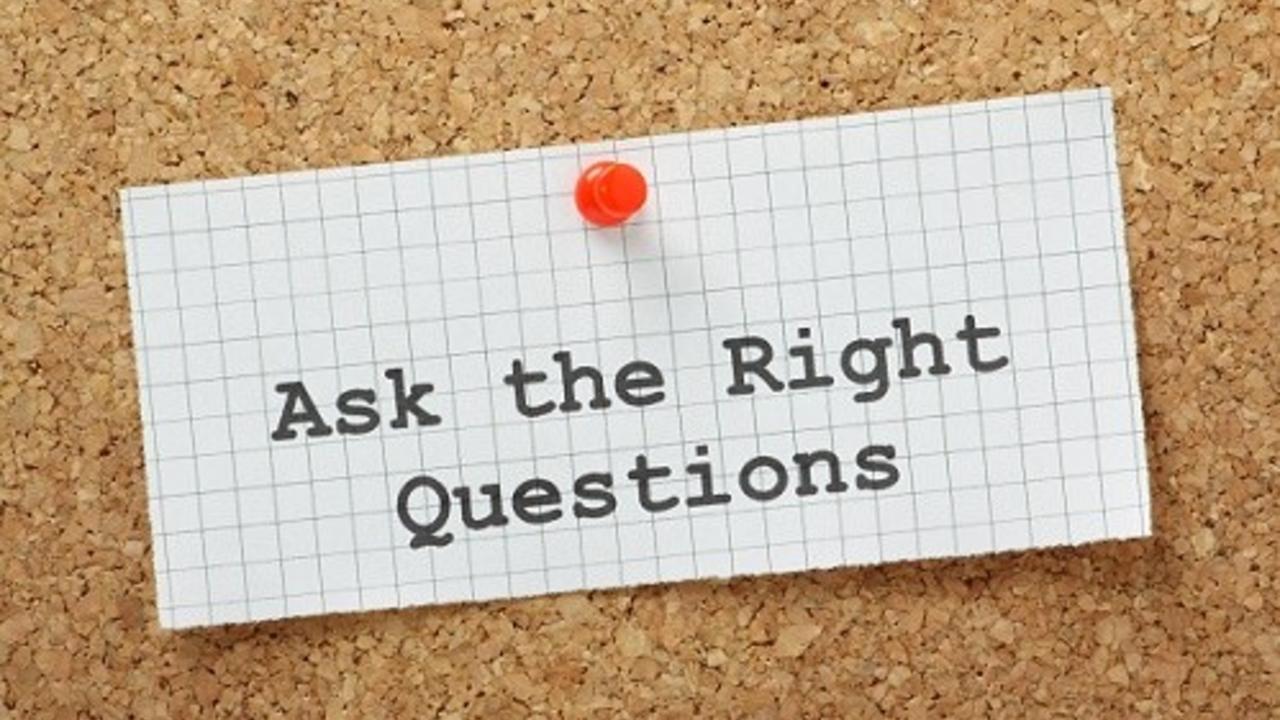Ask the Right Questions, Receive Better Answers - Part I
Apr 23, 2024
Here’s the scenario: It has just come to your attention that a customer filed a complaint about Mr. Smith, one of your employees. While your gut tells you that the customer may have overreacted a bit, there’s enough information to warrant a meeting with Mr. Smith. You know from past experience that he’s somewhat sensitive to criticism, but you have several legitimate concerns. How can you get the information you need without triggering a negative response from Mr. Smith?
Here’s another common office dilemma: You are meeting with a vendor who’s behind schedule and over budget on a project. You don’t want to jeopardize the job and you don’t want to burn a bridge with this company. However, you’re not at all satisfied with the way things are going and you need to take some answers back to your VP of Operations. What is your best approach?
It takes cooperation between every person involved to ensure the smooth operation of a company or organization. This is no small task and in the process there are likely to be ongoing interpersonal challenges. Whether you need information to help you address the need of a customer, resolve an employee issue, or effectively remedy a concern with a vendor, asking the right questions in the right way and at the right time can make all the difference.
Good questions help everyone involved work toward a “win-win” outcome. They should be used to clarify information, not demean or criticize. St. Francis said, “Seek to understand [rather] than to be understood.” Understanding is difficult to come by without first gathering the right information.
In order to ask the right questions in the right way you need to consider several key rules and strategies. Today, we will look at the first three of my recommendations.
First and foremost, listen! When someone feels heard and understood they are more receptive of others’ opinions, ideas and questions. Giving someone the opportunity, without interruption, to express themselves completely communicates interest in what they have to say and respect for them as a person. Equally important, it allows them to “get it off their chest,” releasing the emotions that might otherwise inhibit a constructive dialogue.
Control your emotions. If you’re angry or out of control, you lose respect and credibility. If your frustration has grown into anger, it may be best to avoid asking questions until you are able to get off the emotional escalator. As Thomas Jefferson advised, “If you are angry, count to ten before you respond. If you are really angry, count all the way to 100.”
Start with something positive. Remember, you are trying to create unity and agreement. No matter how much you may disagree with someone on a particular issue, try to find something positive to share about them or their efforts. Expressing appreciation or a sincere compliment before asking your question will often open the listener to hear what you have to say. It will show them that you are not the enemy and that you have the ability to think objectively. For example, “I really appreciate the time and effort you have put into this project. Thank you. My question for you is…”
Next time we will cover the rest of our recommendations to help you ASK the right questions in order to RECEIVE the best answers.
Live, Work and Relate Well!
Dr. Todd
Learn How to Build Unshakeable Self-Confidence Using Scientifically Proven Methods in 30 Days!
Our Confidence in Mind online course unveils how to eliminate embarrassing self-doubt, paralyzing fear, and the crippling voice of the inner critic.
Sign-Up Today!
Stay connected with our newest Blog posts and updates!
Join our mailing list to receive the latest Relate Well Blog posts and updates from our team.
Don't worry, your information will not be shared.
We hate SPAM. We will never sell your information, for any reason.
